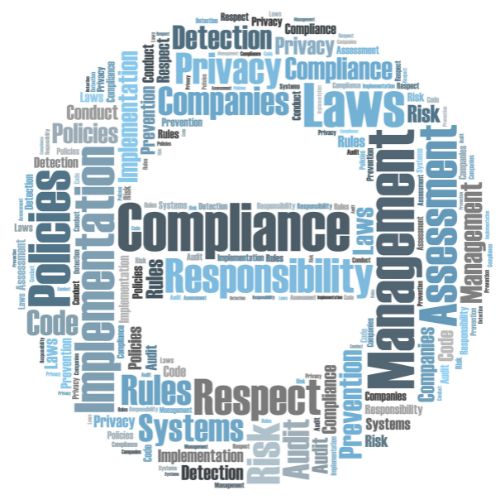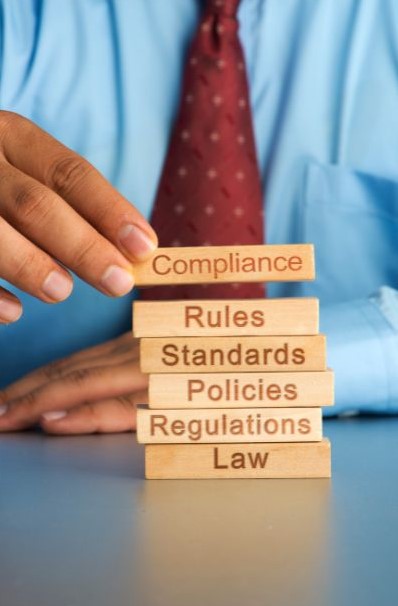Understanding Your Legal Responsibilities as a UK Sponsor Licence Holder
From record keeping to reporting changes—make sure your processes meet Home Office expectations.

Holding a Home Office sponsorship licence is a strategic asset. It allows your organisation to recruit global talent, address skill shortages, and stay competitive.
But it’s also a legally binding agreement with the Home Office that carries real weight.
As a sponsor, you’re expected to comply strictly with UK immigration requirements - your "Sponsor Duties". That doesn’t just mean filling out forms correctly; it means managing risk, implementing systems, and reporting key changes in real time.
Non-compliance doesn’t require intent. Technical or process-driven failures—such as missing a reporting deadline or failing to update a worker’s details—can be enough to trigger penalties or, worse, Home Office sponsor licence revocation.
This post outlines your core legal responsibilities, what the Home Office expects of you in practice, and how to protect your business.
What Are Home Office Sponsor Duties - and Why Do They Matter?
Sponsor duties are the set of legal obligations that all licensed employers must follow under the Immigration Rules and the Home Office’s sponsor guidance.
These duties are not suggestions. Failing to meet them—whether by omission, delay, or misunderstanding—can lead to:
- Suspension or revocation of your licence
- Loss of your ability to sponsor new or existing workers
- Curtailment of sponsored workers' visas
- Financial penalties (particularly in relation to right to work checks)
- Reputational damage and future sponsorship restrictions
Core Areas of Responsibility
The Home Office expects all sponsors to have processes in place across three key areas:
1. Monitoring and Record-Keeping
You must be able to monitor your sponsored workers’ compliance with their visa terms and keep clear, accessible records.
Typically this includes:
- Copies of ID – passport, BRP or visa evidence (including eVisas)
- Right to work check records
- Signed employment contracts
- Detailed job descriptions
- Evidence of qualifications (if required for the role)
- Absence records – including sickness, annual leave, and unpaid leave
- Proof of salary – payslips and bank payment records
- Recruitment evidence – CVs, job adverts, interview notes
All this must be retained in line with Appendix D requirements and made available for inspection by Home Office officers during an audit.
Tip: Maintain a consistent sponsor file structure and review these files every 6–12 months.

2. Reporting Duties
The Home Office requires that you report specific changes or events, usually within 10 working days. These include:
- A sponsored worker resigning, being dismissed, or leaving early
- A change to their job title, duties, or reduction in salary that affects the role
- Reductions in working hours or changes that affect eligibility
- Absences of more than 10 consecutive working days without permission
- Changes to your organisation’s (within 20 working days):
- Legal entity
- Ownership
- Registered address
- Key Personnel (Authorising Officer, Key Contact, Level 1 Users)
Reporting is usually done via the Sponsor Management System (SMS). If an event is reportable and you fail to act within the deadline, it counts as a breach—even if the worker remains in status.
Common pitfall: HR teams update their systems but forget to notify the Level 1 User, or the change is seen as "minor" internally but has sponsor implications.
3. Preventing Illegal Working
Even outside the scope of sponsorship, all UK employers are required to prevent illegal working. But as a sponsor, your responsibility is higher, and failure to comply affects your Home Office sponsor licence.
You must:
- Conduct compliant right to work checks before employment starts
- Use the correct check method (manual or online) based on visa type
- Retain the evidence in the correct format (signed, dated copies or digital records)
- Track visa expiry dates and conduct repeat checks where needed
Since 2024, civil penalties for illegal working have increased to £60,000 per breach. But more critically for sponsors, even a single instance of non-compliance can result in a Home Office visit or sponsor licence downgrade, suspension or revokation.
Important note: You can be found non-compliant for a right to work error even if the person is not a sponsored worker. The Home Office takes a whole-business view of risk.
Who’s Legally Responsible?
You are. But specifically, the Key Personnel listed on your sponsor licence carry distinct responsibilities:
- Authorising Officer – legally responsible for overall compliance. This should be a senior person with authority over recruitment and systems.
- Key Contact – acts as the Home Office liaison (rarely contacted but must be up to date).
- Level 1 User – handles day-to-day activity on the Sponsor Management System (e.g. assigning CoS, reporting changes).
If any of these roles are left unfilled, or filled by someone who is no longer with the business, you are already in breach.
Key checks to make today:
- Has your Authorising Officer changed roles or left the company?
- Does your Level 1 User still have access to the SMS?
- Do you have a backup Level 1 User trained and ready?
What the Home Office Will Expect to See
Whether through a compliance audit or desk-based review, the Home Office will typically expect to see:
- Sponsor files that match Appendix D standards
- Reporting activity that aligns with any changes made
- Right to work documentation for all staff
- Visa expiry tracking system
- Internal training or guidance for HR and operations teams
- Consistency between what’s reported and what’s on payroll, job descriptions, and internal records
What If You’re Non-Compliant?
Penalties escalate based on severity and repetition. Typical enforcement actions include:
| Situation | Consequences |
|---|---|
| Missed reporting deadlines | Warning, action plan, B-rating |
| Misalignment of job details and CoS | Suspension or refusal to renew licence |
| Right to work failures | Civil penalties, licence downgrade or revocation |
| Non-cooperation during audit | Immediate suspension pending investigation |
A single serious breach can be enough to revoke your licence—especially if it suggests systemic non-compliance or disregard for your duties.

How to Stay Compliant Without Losing Time or Focus
UK immigration compliance doesn’t have to slow you down. The most successful sponsors we work with follow three core practices:
-
Embed sponsor duties into wider HR and operations
– Include visa status in onboarding/offboarding flows
– Train multiple team members on reporting triggers
– Treat sponsor records like any other regulated process (e.g. payroll or tax) -
Run mock compliance audits at least once a year
– Use these to test file completeness, right to work checks, and SMS reporting -
Treat the licence like a regulated asset
– Make sure Key Personnel are active and engaged
– Include sponsorship in internal risk registers or compliance reviews
What to Do If You’ve Spotted a Risk
If any of the responsibilities above have raised questions or concerns about your current setup, you’re not alone, and you don’t need to panic.
The most common sponsor breaches aren’t due to deliberate wrongdoing, but rather oversights, unclear responsibilities, or missed deadlines.
We work with UK employers to:
- Assess sponsor licence compliance
- Identify risk areas and technical gaps
- Support with remediation and mock Home Office compliance audits
- Train HR, Authorising Officers, and Level 1 Users
Whether you're looking for peace of mind or responding to internal changes, we're here to help.


Compliance Isn’t a One-Off Exercise
Sponsor licence compliance is ongoing. It’s not something to revisit once a year or only at renewal—it should be built into your day-to-day operations.
The good news? With the right advice and support, it doesn’t have to be overwhelming or disruptive.
Sponsor licence compliance is ongoing. It’s not something to revisit once a year or only at renewal—it should be built into your day-to-day operations.
The good news? With the right advice and support, it doesn’t have to be overwhelming or disruptive.








